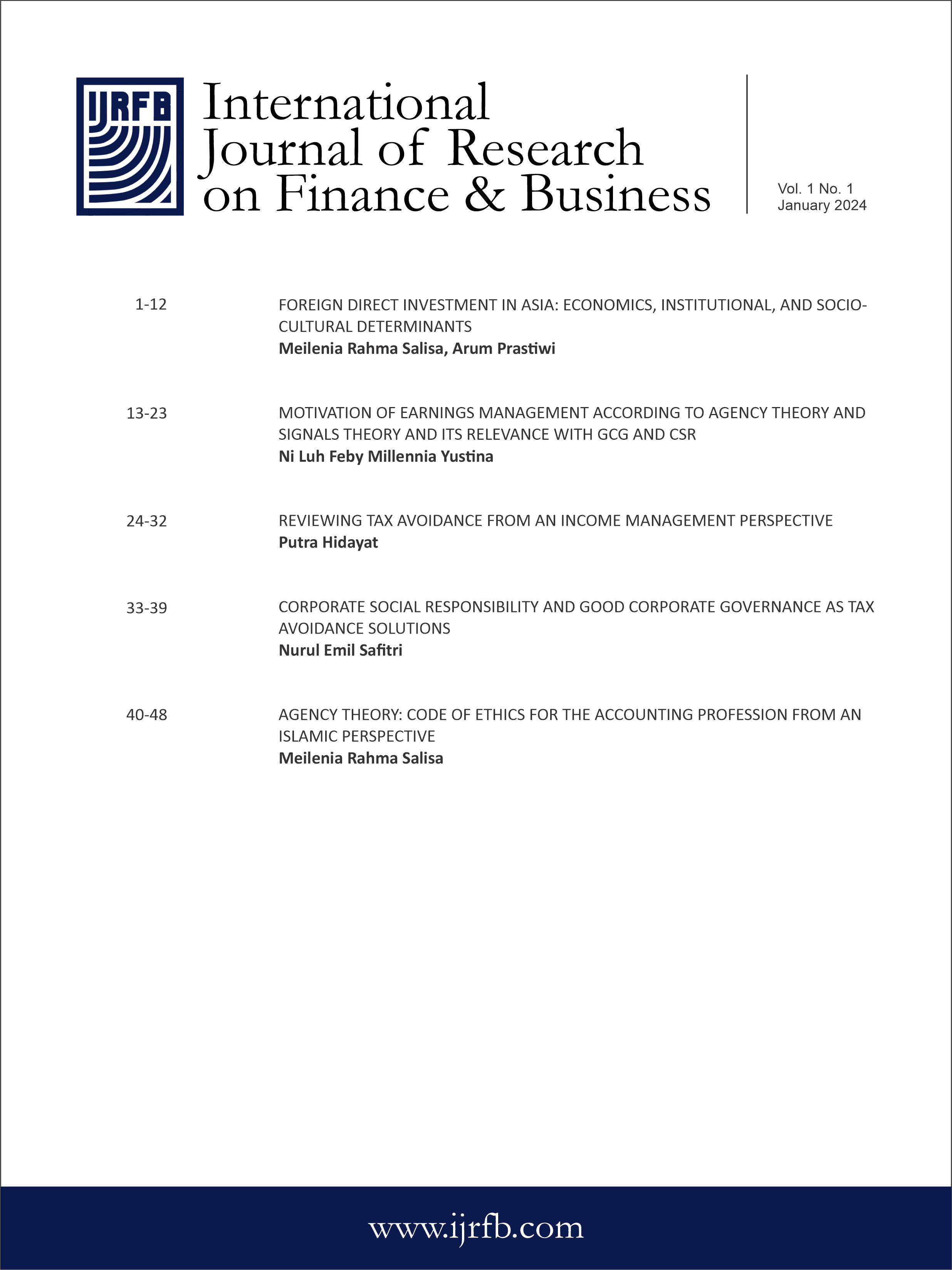FOREIGN DIRECT INVESTMENT IN ASIA: ECONOMICS, INSTITUTIONAL, AND SOCIO-CULTURAL DETERMINANTS
DOI:
https://doi.org/10.70575/ijrfb.v1i1.1Keywords:
Corruption Perception, English Profficiency, Exchange Rate, Foreign Direct Investment, Population Growth, Tax RevenueAbstract
This study aims to analyze the economics, institutional, and socio-cultural determinants of Foreign Direct Investments in 18 Asian countries from 2016 – 2020. Economic determinants are represented by exchange rate depreciation and tax revenue growth; institutional determinant is represented by corruption perception; and socio-cultural determinants are represented by population growth, and English profficiency. This study uses quantitative approach and Random Effect Models to analyze the data by using Eviews 12. The results of this study indicate that exchange rate depreciation and corruption perception influence FDI positively. However, tax revenue, population growth, and English profficiency do not influence FDI. Based on the results, economics is the determinant that most influences FDI, followed by institutional determinant. Socio-cultural determinants do not influence FDI in this study. Considering the results of the study, the implication of this research is the need for government to improve economics and institutional aspect by develop policy that decrease additional costs of doing business and continue efforts in improving the integrity and credibility of their administration and transactions to attract more FDI in the future.





